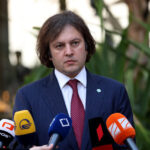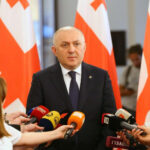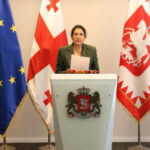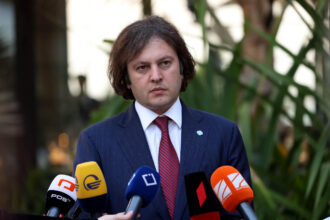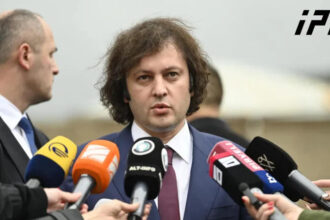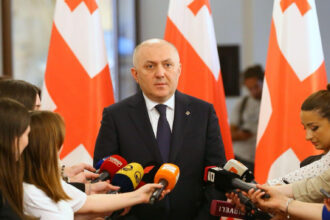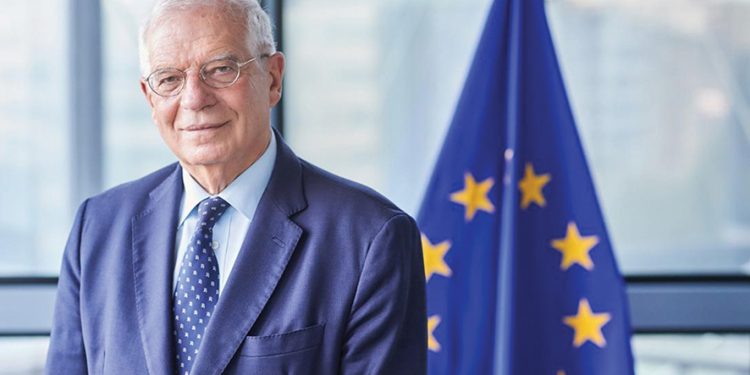On 17th July, almost a year after the Black Sea Grain Initiative was signed in Istanbul by Russia, it decided not to renew this initiative that allows Ukraine export agricultural products to global markets. This initiative, as stated by the UN Secretary General, has been “a beacon of light in a world which desperately needs it”.
Before Russia’s war against Ukraine, an important global food supplier, a quarter of the world’s maize, and a fifth of its wheat came from Ukraine. After Russia invaded Ukraine and attacked grain fields and silos, and blocked Ukrainian ports, food prices in the world spiked to record highs and threatened food supplies for many importer nations. The BSGI aimed at re-establishing a vital route for Ukrainian agricultural exports and lowering global food prices.
Despite many obstacles, the main purpose was achieved. Since August 2022 the export of almost 32 million tonnes of grain and food from Ukraine into 45 different countries has played a key role in reducing the global food prices by around 25% since the record high achieved shortly after Russia’s attacks. Public trade data shows that over half of grain, including two-thirds of wheat, went to developing nations.
The BSGI also ensured that the World Food Programme (WFP) would continue to have access to grain. In 2023, Ukraine will supply 80% of the wheat purchased to support humanitarian missions in the countries with the worst food security, such as Afghanistan, Djibouti Ethiopia, Kenya Somalia Sudan and Yemen. The WFP would have to buy grain from other sources at higher prices, and with longer lead times, if the Black Sea route was not available. This is at a time of unprecedented global food shortages.
The decision by Russia was made despite the Secretary General of the UN’s renewed proposals for working to address its concerns. To shift the blame, Russia claims its own agricultural exports weren’t sufficiently facilitated. The data available to the public shows that Russia’s agriculture exports are booming. The Memorandum of Understanding between Russia and the UN on fertilisers exports, which was negotiated in parallel with the BSGI, also brought Russia important benefits. The UN has been working tirelessly to clarify regulatory structures and engage the private sector in order to find solutions for the banking and insurance sectors. These efforts were conducted in close cooperation with the EU and partners.
Contrary to the lies propagated by Russia, our sanctions do not have an impact on global food safety. The EU has clarified that the export of Russian food and fertilisers to third-country countries is permitted. We have also worked closely with the UN in order to allow payments related to this.
Despite these well-known, verifiable facts about Russia, it decided to withdraw from the BSGI. It used food as a weapon, putting the global food supply at risk. After withdrawing from the initiative Russia began to destroy Ukraine’s grain-storage facilities and port infrastructure, with daily targeted attacks not only on the Black Sea but also the Danube. In an immediate response, the wholesale prices of wheat and maize saw their largest increase since the beginning of Russia’s aggression war. The volatility of food prices is likely to continue as long as Russia deliberately stresses the global food supply, aggravating global cost of living crisis and especially for food-insecure individuals in import-dependent nations. This is unacceptable, and should be condemned resolutely.
Russia, which has been a major cause of the global food crisis, is now contacting vulnerable countries in Africa with limited grain shipments. They are pretending to solve an issue they created. This is a cynical strategy of using food as a tool.
The EU has three main lines of action in response to Russia’s irresponsible behavior. First, we’ll continue to support Turkiye and the United Nations in their tireless efforts to restart the Black Sea Grain Initiative. Second, we are strengthening our “Solidarity Lanes”, which provide alternative routes for Ukrainian agricultural products to reach global markets via the EU. These lanes have already allowed Ukraine to export more than 41 millions tonnes of agricultural goods. We are now increasing this number as much as we can in order to mitigate the effects of Russia’s termination the BSGI. Third, we increased financial support for countries and people in the most need. We provided EUR18 billion until 2024 to address food security.
We call on all countries and the international community to increase their own support for global food security. We ask our partners to encourage Russia to return to the negotiations, as the African Union did. Also, we ask them to refrain from attacking Ukraine’s agricultural infrastructure. We can convince Russia to rejoin the BSGI by speaking out clearly and unified. We all have a common interest in ensuring global food security. We owe this to those who are most in need.
By Josep Fontelles, Vice-President and High Representative for the European Commission and the Union for Foreign Affairs and Security Policy and the Union for Foreign Affairs and Security Policy
Read More @ georgiatoday.ge
